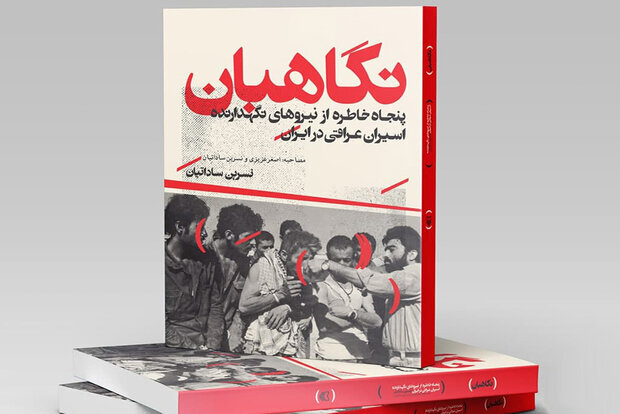The Guardians

"The Guardians," written by Nasrin Sadatian and published by Soore Mehr, is a collection of 50 narratives from 50 Iranian guards at a prison camp for Iraqis.
* Did you have any previous writing experience prior to writing this book?
Yes. Despite having a bachelor's degree in biology, I have a master's degree in dramatic literature and have written some screenplays. It was because of this interest in writing that I changed my major and began seriously pursuing writing.
* Could you elaborate on the title "Guardian" of the book?
The stories' narrators were all those who had some sort of contact with the prisoners, which broadened the scope of the subject. Commanders, camp officials, medical personnel, aid workers, and others.
* What challenges did you face during the interviews?
I began writing the book on March 8, 2017, with the expectation of finishing it by the end of the summer of 2018. But, for three years, we faced challenges due to a variety of factors, including the interviewee's failure to show up, old age, commuting, and, most importantly, their unwillingness to be interviewed. Besides, some of them had lost pieces of their memories and had to talk for hours to recall them. Eventually, I spent 128 hours interviewing these 50 people in order to write their memoirs.
* Which facts stood out to you the most in these memories?
The Iraqi Ba'athists had so brainwashed their soldiers that even in captivity, they wanted to follow their own rules and power, making it difficult for the guards. As a result, the guards couldn't always use military force to calm them down, so they had to go talk to them without weapons.
* How truthful are the stories? Do you think the audience believes the guards did not use as much force and power as they could?
I can confidently state that the story is free of exaggeration and censorship.
They were not permitted to act violently because of the condition, especially after Imam Khomeini's remark that Iraqi prisoners are our guests. For that when an Iranian soldier slaps an Iraqi soldier, the commander standing in front of the prisoners slaps our soldier.
* It must have been difficult for the guardsmen and you to go over the memories. How did you keep the situation under control?
We cried a lot during the work. I broke down in tears easily and handed the narrator a tissue to make him feel better and wipe away his tears, and I didn’t really try to control all our emotions.
* What feedback did your book receive from readers?
Many people were surprised that I chose the subject of war, and I was surprised as to why certain people with certain ideas and appearances were required to do so. I explained to them that war is a significant and valuable issue for a country's citizens, regardless of their beliefs or lifestyles.
Leave a Comment